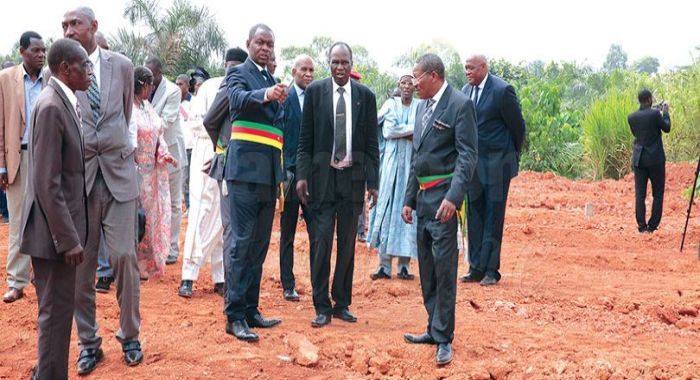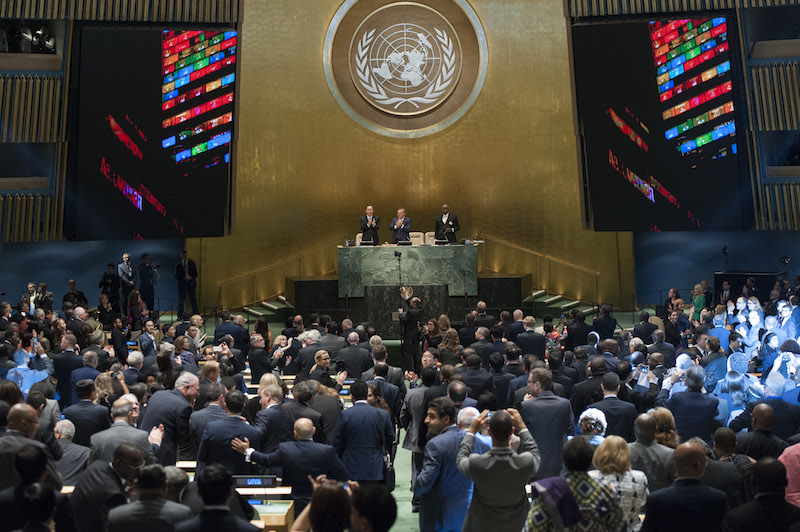
By Elias Ngalame Ntungwe
The Cameroon government says it is intensifying efforts to protects wetlands.
An inventory conducted recently by the ministry of environment shows that of the hundreds of wetlands existing, the country can boast of six wetlands of international importance.
These, according to the Minister of environment, Hele Pierre, include the flood plain of Waza Logone, the wetlands of the Bakassi Peninsula, part of the Ntem and Sanaga Rivers, the crater lake of Barombi-Mbo and Lake Chad.
Speaking at a workshop in Yaounde in February 2018, he recalled that wetlands are ecosystems with depth of not more than six metres and where water is the most determinant factor.
He stated that by adhering to the Convention on wetland protection, Cameroon is manifesting it willingness to manage the wetlands for the well-being of the population, Helé said this was marked by the creation of the National Ramsar Committee and the national focal point to deal specifically with issues of wetlands.
In addition, and projecting the importance Cameroon attaches to wetlands, Helé said a Network of Parliamentarians on wetlands was created while several integrated management projects such as the Ebogo Ramsar site, Cameroon’s portion of Lake Chad and the Bakassi Peninsula are being elaborated.
He also disclosed that since November 2008, Cameroon is a member of the Conference of Committee – the highest decision making organ of the Ramsar Convention.
He acknowledged, however, that in spite of the progress made, the Government still needs to put in much for the population to directly feel the impact of the results recorded so far. He recommended the elaboration of a national policy on wetlands as one of the priorities for the said objective to be attained.
“To succeed in drawing benefits from wetlands by the population, we must ensure the respect of environmental norms in their exploitation,” Helé told his collaborators and other stakeholders working in the domain of nature protection, preservation and conservation.
He also urged public administrations, NGOs and development partners to adopt a multi-sectoral approach in the management of ecosystems.
The government called on people recovering wetlands for construction purposes in the Yaounde VI council area to desist from such practices which are not ecologically friendly to the environment.
The Minister of the Environment, Protection of Nature and Sustainable Development, Hele Pierre, who led a delegation on a field visit to wetlands in the Simbock neighbourhood condemned the uncontrolled occupation of wetland areas by the population.
The field assessment of the marshy area was to mark the 21st edition of the World Wetlands Day in Cameroon. The commemoration was celebrated under the theme “Wetlands for a sustainable urban future.”
According to the minister, for there to be sustainable urban development, drainage systems have to be cleared to permit water follow its course unperturbed in other to avoid disasters. The minister reminded the locals struggling to recover wetlands that the law prohibits construction on such sites.
A census carried out by the Yaounde VI council shows that wetlands account for 7km2 of the municipality’s total surface area. Some 400 houses have been identified in the wetlands which accommodate over 2,000 people.
Experts point out that the residents are at risk of flooding and related disasters.
Government says to ensure a sustainable urban future, it has been engaging in different operations, amongst which include, Operation Green Cities, Operation Sustainable Cities and Operation Clean Cities.
The World Wetlands Day is celebrated every year to mark the date of the adoption of the Convention on Wetlands on 2 February 1971, in the Iranian city of Ramsar. The day is used to raise public awareness about the importance and value of wetlands. Cameroon is a signatory to the Ramsar Convention .












